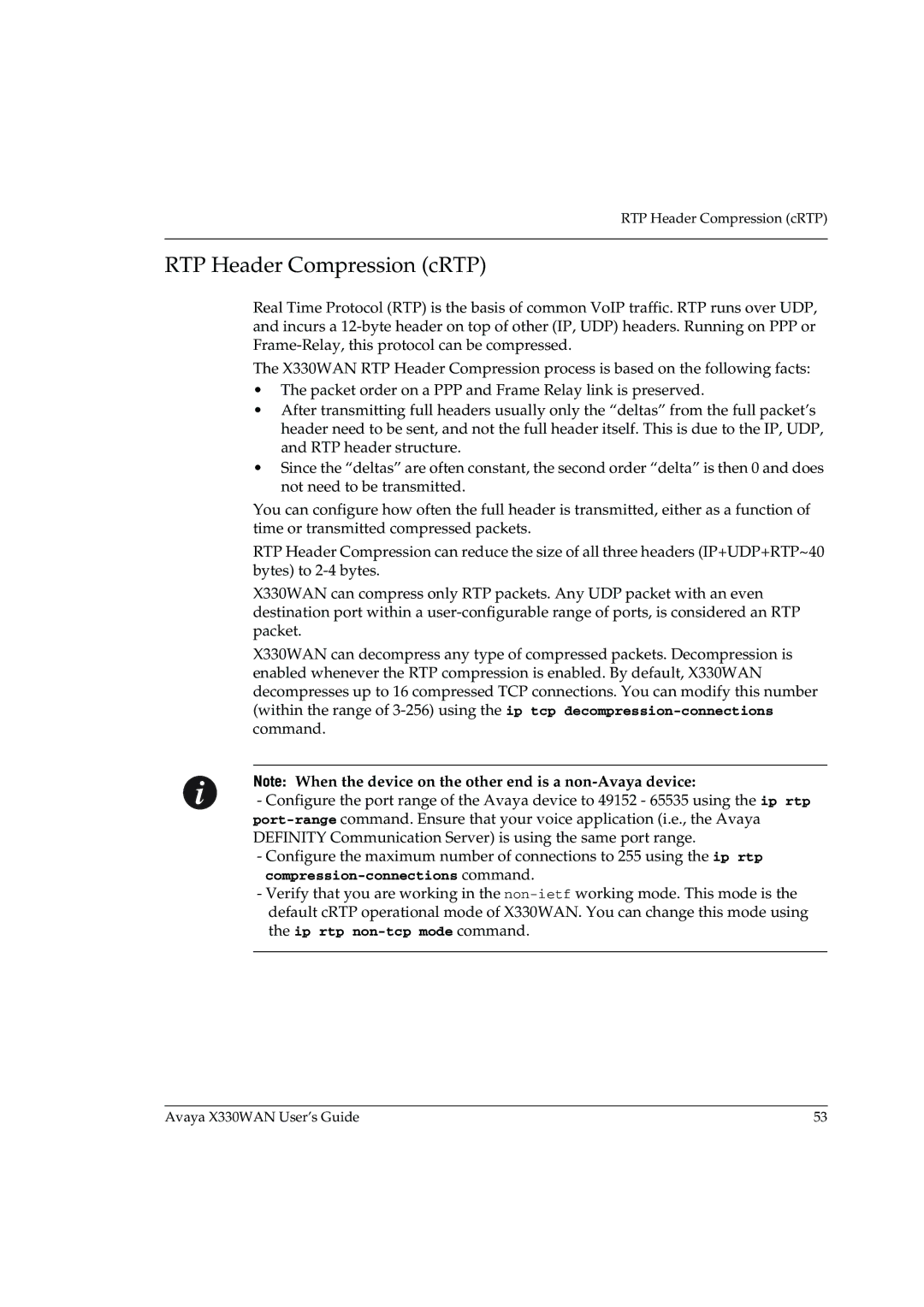
RTP Header Compression (cRTP)
RTP Header Compression (cRTP)
Real Time Protocol (RTP) is the basis of common VoIP traffic. RTP runs over UDP, and incurs a
The X330WAN RTP Header Compression process is based on the following facts:
•The packet order on a PPP and Frame Relay link is preserved.
•After transmitting full headers usually only the “deltas” from the full packet’s header need to be sent, and not the full header itself. This is due to the IP, UDP, and RTP header structure.
•Since the “deltas” are often constant, the second order “delta” is then 0 and does not need to be transmitted.
You can configure how often the full header is transmitted, either as a function of time or transmitted compressed packets.
RTP Header Compression can reduce the size of all three headers (IP+UDP+RTP~40 bytes) to
X330WAN can compress only RTP packets. Any UDP packet with an even destination port within a
X330WAN can decompress any type of compressed packets. Decompression is enabled whenever the RTP compression is enabled. By default, X330WAN decompresses up to 16 compressed TCP connections. You can modify this number (within the range of
Note: When the device on the other end is a
-Configure the port range of the Avaya device to 49152 - 65535 using the ip rtp
-Configure the maximum number of connections to 255 using the ip rtp
-Verify that you are working in the
Avaya X330WAN User’s Guide | 53 |
